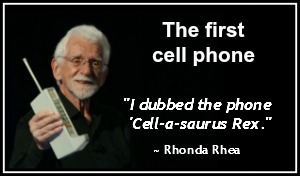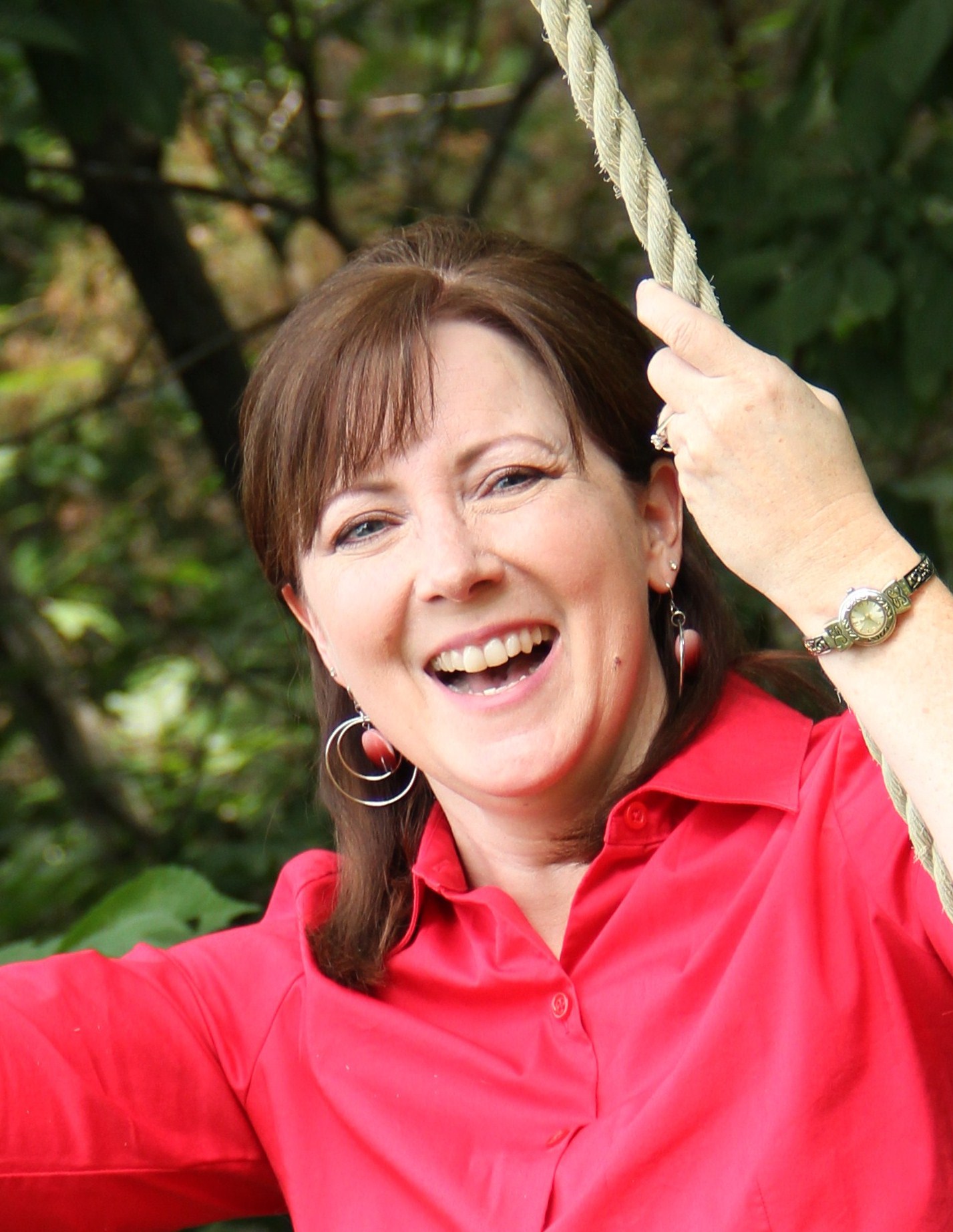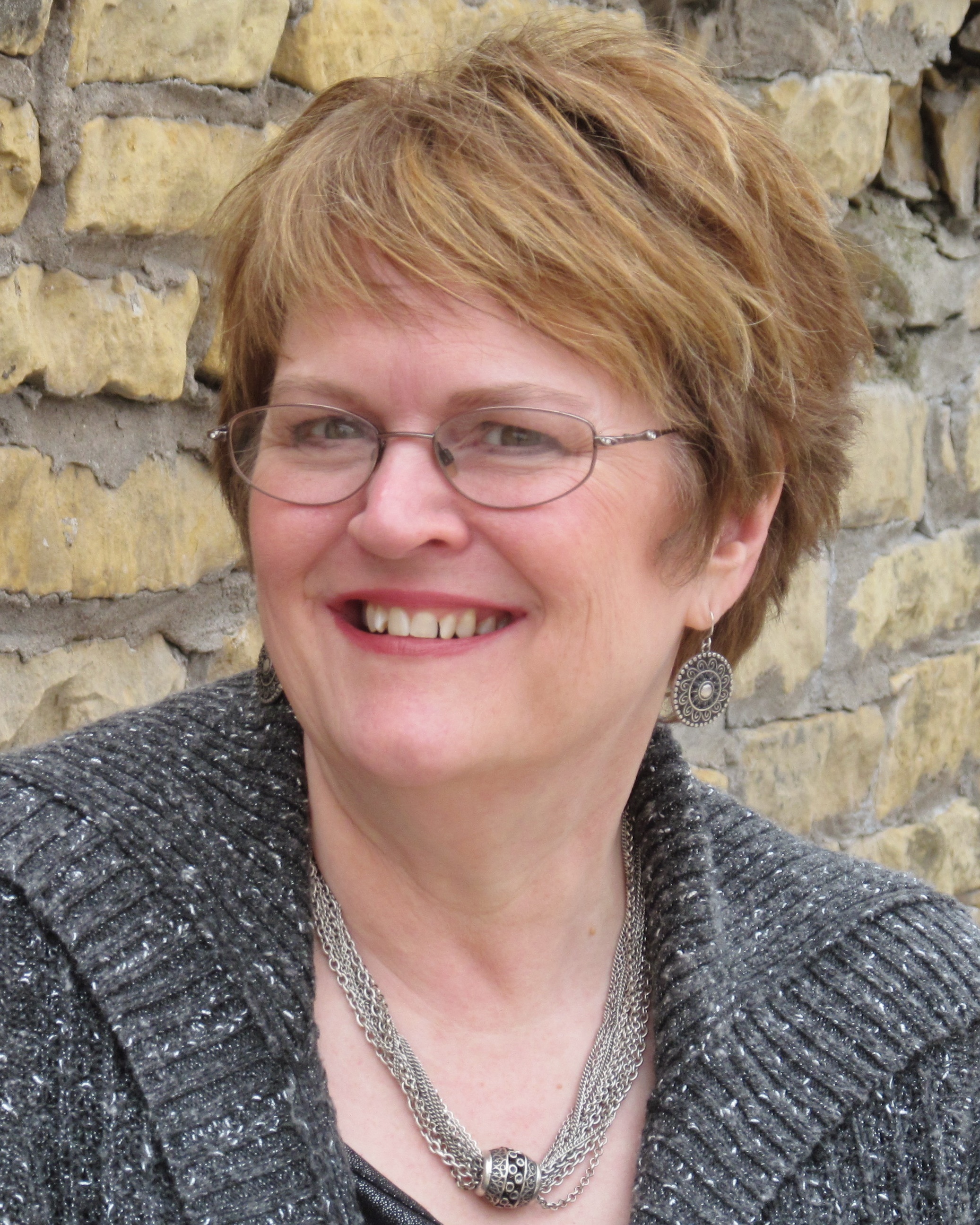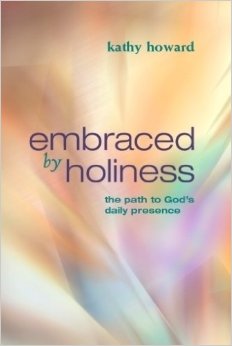How to Grow Faith at the Cellular Level
Author and pastor’s wife Rhonda Rhea always tickles my funny bone, right before she whops me right upside the head with truth!
“My kids are all in their early twenties and all very tech-savvy, so it was really funny the other day
when they saw one of the earliest cell phones,” Rhonda says. “I’m talking vintage here—just this side of fossilized. And huge. A dinosaur in every way.”

If you know the kind of phones Rhonda’s talking about, you’re dating yourself. Dr. Martin Cooper (pictured here) is credited with creating the first cell phone for Motorola. Imagine holding that to your ear for while … can you say, “Muscle cramp”?
Rhonda continues …
I dubbed the phone “Cell-a-saurus Rex.” My kids thought it must be some sort of coffee grinder. I think one of them was trying to get it to churn butter.
If you want to know what it was really like with those first mobile phones, try holding your microwave oven upside your head. All the mobile phone bells and whistles? I’m pretty sure on those first phones, they were actual bells and whistles.
I told my kids that I thought people probably had a tough time back then knowing if a guy was listening to his boom box or talking on his cell phone. Of course, then I had to explain what a boom box was. I told them it was a giant mp3 player.
I’m thankful technology is always evolving, coming up with something bigger and better.
Or sometimes something smaller and better.
Sometimes size is pretty relative. I want a big faith. I really do. I want super-sized faith with all the bells and whistles. But when the disciples asked Jesus to give them bigger faith, Jesus answered in a rather surprising way.
In Luke 17:5 the disciples said to Jesus, “Increase our faith.” Jesus’ answer? “If you have faith the size  of a mustard seed, you can say to this mulberry tree, ‘Be uprooted and planted in the sea,’ and it will obey you’” (HCSB).
of a mustard seed, you can say to this mulberry tree, ‘Be uprooted and planted in the sea,’ and it will obey you’” (HCSB).
Matthew tells us that Jesus said, “For truly, I say to you, if you have faith like a grain of mustard seed, you will say to this mountain, ‘Move from here to there,’ and it will move, and nothing will be impossible for you,’” (Matthew 17:20, HCSB).
According to Jesus Himself, with even the tiniest faith, we can do huge things. Impossible things. Impossible things like bearing fruit in our ministries. Even finding great joy in it.
It’s not so much the SIZE of the faith as it is WHO the faith is in.
A faith planted firmly in Christ and an obedient response to His lordship makes a huge impact on life. Mountainous!
It’s good to remember that faith grows at the deepest part of who we are. At the “cellular” level, if you will. Not just the surface parts. Not even just the p-dub service parts. But all the way to the heart.
Paul tells us in Romans 10:17 that faith comes by hearing and hearing by the Word of God. Don’t you love it that His Word teaches us about His character, His history, His power and His incomparable trustworthiness?
Studying the character of God has changed my faith. It always changes our faith—all the way down to our deepest, heart-of-heart parts. The more we study Him through His Word, and the more we know Him, the more we respond in obedience, and the more our faith grows.
How has God’s Word deepened your faith? Increased your faith? Stretched your faith?
Rhonda Rhea is a humor columnist, radio personality, speaker and author of 10 books, including How  Many Lightbulbs Does It Take to Change a Person?, Espresso Your Faith - 30
Many Lightbulbs Does It Take to Change a Person?, Espresso Your Faith - 30  Shots of God's Word to Wake You Up and a book designed to encourage Pastor’s Wives (P-Dubs): Join the Insanity. This sunny pastor’s wife lives near St. Louis and is “Mom” to five grown children. Find out more at www.RhondaRhea.com.
Shots of God's Word to Wake You Up and a book designed to encourage Pastor’s Wives (P-Dubs): Join the Insanity. This sunny pastor’s wife lives near St. Louis and is “Mom” to five grown children. Find out more at www.RhondaRhea.com.
Note: Post is excerpted/adapted from Chapter 10, Join the Insanity.
 Post a Comment → Posted on
Post a Comment → Posted on  Tuesday, July 22, 2014 at 8:00AM
Tuesday, July 22, 2014 at 8:00AM  Faith,
Faith,  First Cell Phone,
First Cell Phone,  Join the Insanity,
Join the Insanity,  Mustard Seed,
Mustard Seed,  Rhonda Rhea,
Rhonda Rhea,  Spiritual growth,
Spiritual growth,  UpgradeWithDawn Upgrade Your Life
UpgradeWithDawn Upgrade Your Life  Spiritual Growth,
Spiritual Growth,  Spiritual Life
Spiritual Life 















